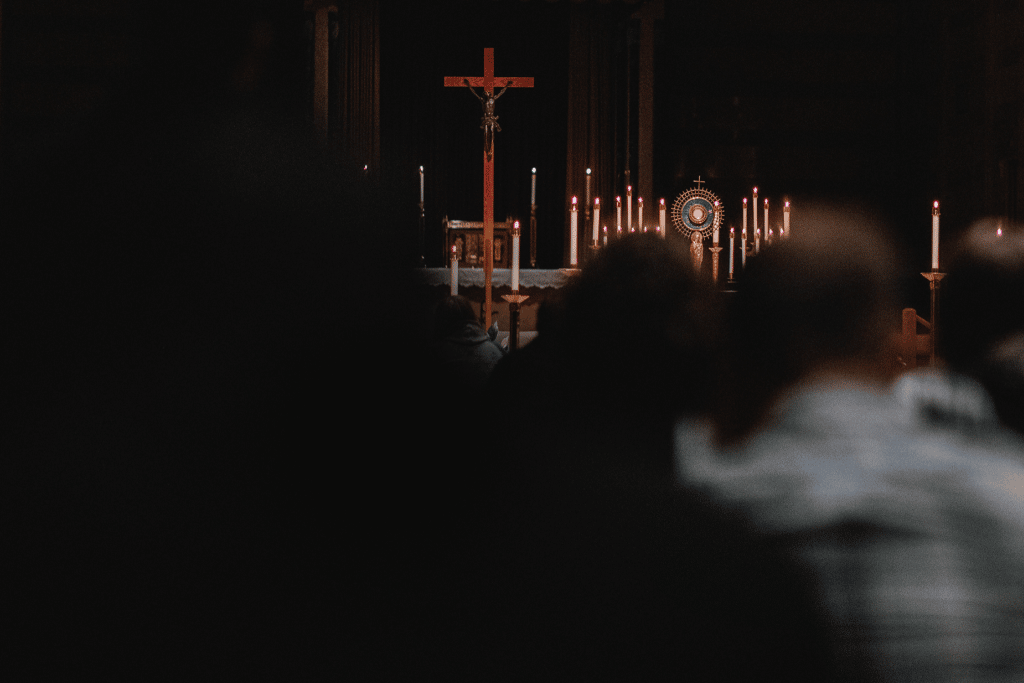There is nothing quite like a child excitedly looking at the Christmas gifts neatly wrapped under the tree. Picture a little girl counting down the days until she can unwrap them to see what good gifts her mother and father — or Santa — brought for her. What a joyful anticipation this waiting is!
Advent is upon us. It too is a season of waiting, of joyful anticipation for a great gift to be revealed. It is a time of preparation for the coming of Christ. St. Bernard of Clairvaux, the “Sweet Doctor” of the Church as he is often called, teaches us the various levels of waiting we experience during Advent. First, we are waiting for Jesus’ coming in his birth in the flesh. This is what we celebrate year after year at Christmas. We know the beautiful story of Joseph and Mary looking for lodging in Bethlehem and, finding none, birth Jesus in a manger. This is the story of God’s coming in the flesh — the Incarnation. It is a story of such depth and awesomeness that we will never exhaust its riches. God wanted to dwell with us. And he came as a poor child of poor parents.
During Advent, we prepare to celebrate this first coming of Christ. Just as he broke into the world as a light to the nations, (Lumen Gentium, 1) he calls us to be the light of the world (Mt. 5:14). Remembering his first coming is a commitment to our mission in Christ to share him with others. The good news of this first coming has been entrusted to us to share with others. This is our mission here in the Archdiocese of Detroit: to be a band of joyful missionary disciples!
The final coming of Christ is foretold throughout the Advent liturgies. Just as we prepare for Christ’s humble birth in Bethlehem, we know that he has promised to come again. His second coming will be quite different. He will not come in humility and lowliness but in power and glory. It will be unmistakable that Christ is King of the universe. This second coming is mentioned throughout the New Testament. Jesus promised to return and bring the whole world under his authority. This authority, which rightly and properly belongs to God, will be manifest for all to see. There will be no doubt that Jesus is Lord. At this time, all will realize with great clarity how good and generous God has been to the world. Jesus will come, as we recite in the Creed every Sunday, to “judge the living and the dead and his kingdom will have no end.”
During Advent, we prepare for this second coming of Christ through our perseverance. We are reminded in our reading of the need to “stay awake!” so that we do not grow drowsy by the enticements of this world. To fall asleep would be to find ourselves unprepared for the coming of Christ. As a great priest I know says, when Christ comes again, we need to be ready to meet him as a friend whom we have spent time getting to know, not as a stranger with whom we have lost touch.
But between this first and last coming of Christ, he comes in another way. This middle coming of Christ is when he comes personally to each believer. In so many ways, Christ is coming here and now. This coming is more mysterious and can easily be missed if we are not attentive.
He comes to us daily in the Eucharist, reminding us “I am here; I have not forgotten you or abandoned you. I am here.” Throughout metro Detroit, this Advent, we are invited to realize this “middle coming of Christ” in the Eucharist by spending time in eucharistic adoration. Each night a different parish will host a holy hour of prayer before Jesus in the Eucharist. We will spend time praying and singing to share our hearts with him. And we will spend time in silent adoration, inviting Christ to share his heart with us.
In my spiritual life, both before ordination and as a priest, eucharistic adoration has been an extraordinary means of realizing God’s closeness to me. When I was lonely or confused, sitting before Jesus in the Eucharist helped me to see God’s goodness through my troubles. When I was uncertain about a major decision I had to make, Jesus’s quiet and peaceful presence in adoration gave me confidence in what I needed to do. When I was at peace, a holy hour before the Lord in adoration lifted that peace into a foreshadowing of the everlasting peace of heaven.
Advent is a season of waiting for the three comings of Christ taught by St. Bernard. There is no better way to enter into Advent’s hopeful anticipation than to spend time with Jesus in adoration. God has great gifts waiting for us under the tree of life. Let’s spend some of that time waiting for his final coming, remembering the greatness of his first coming at Christmas and acknowledging how he comes to us daily in adoration. “I have not left you,” says the Lord; “I am here.”
